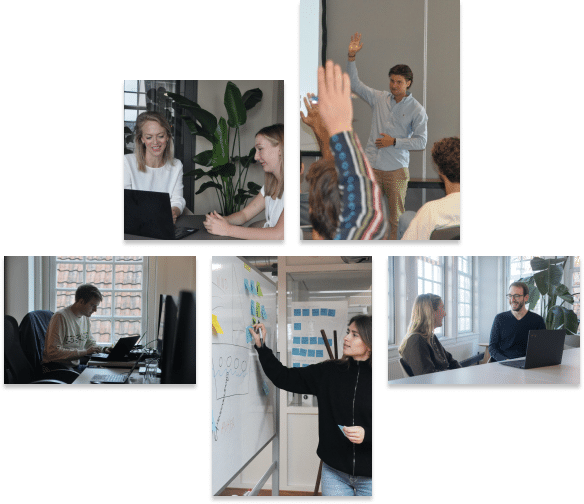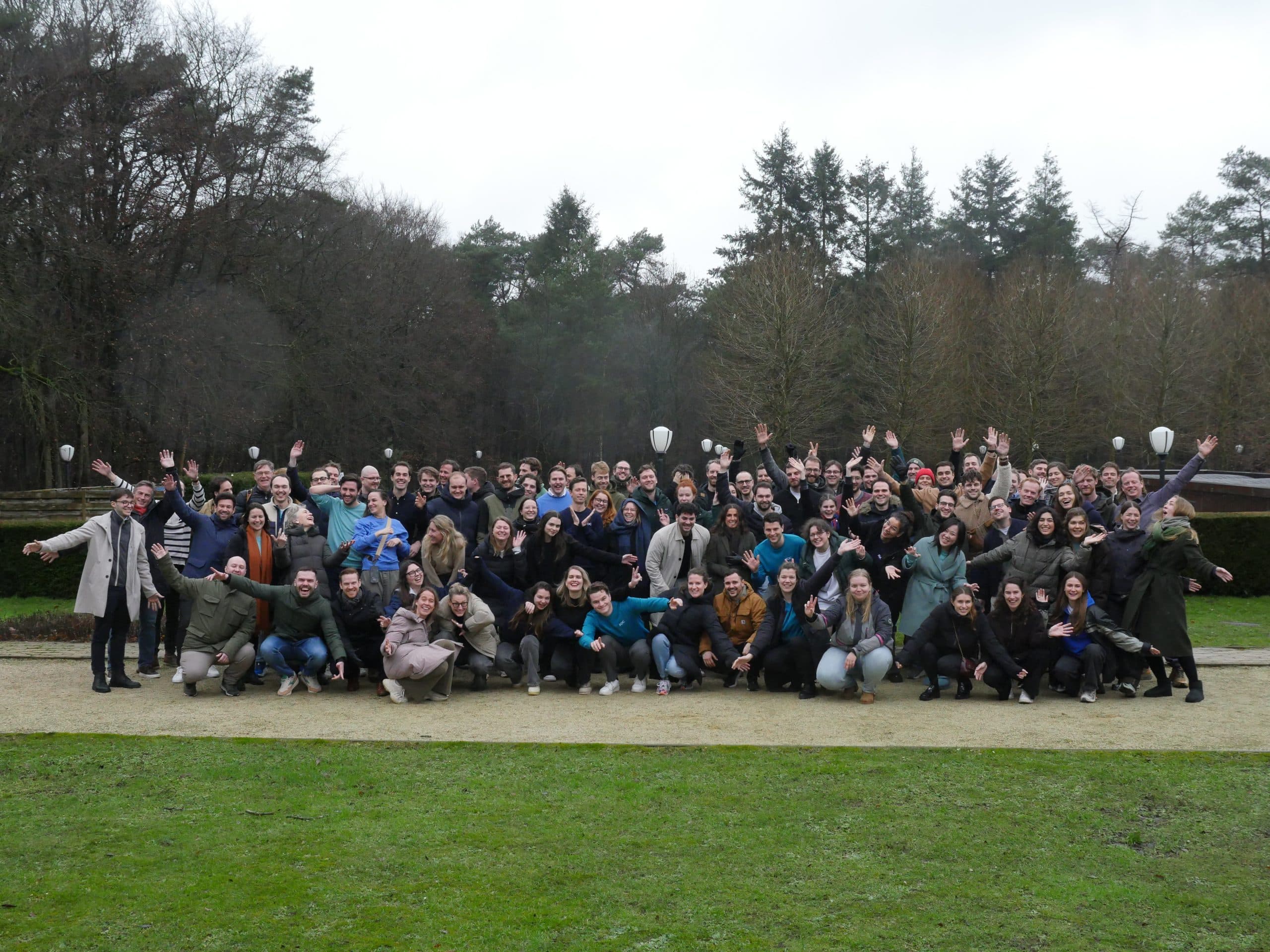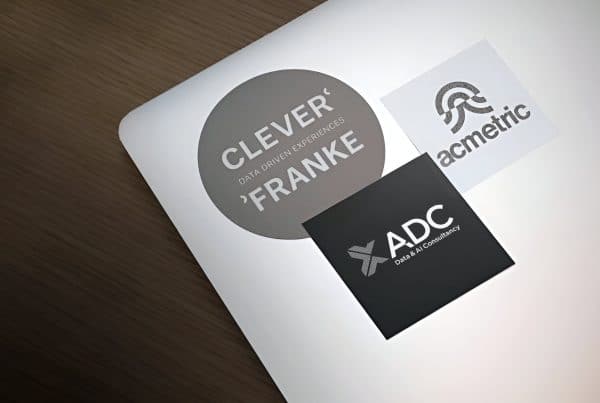At ADC, we realise the potential of data & AI to create real impact in organisations. That’s why our entire team participates in an annual Collective Week where we work on pro bono projects helping organisations in the Netherlands, Denmark, and Sweden who can’t afford our services make a positive impact. It’s also an opportunity for us to continue strengthening our collective skills and culture through team building activities.
This year, for our sixth annual Collective Week, we worked on 18 diverse projects. The projects aim to use data & AI to support areas such as education, fertility, land restoration, drug policy, and more. Discover a selection of the projects below.
Centre for Evidence-Based Drug Policy
The Centre for Evidence-Based Drug Policy (CEBDP) advances UK drug policy using scientific insights to reduce harm and enhance public health. The team developed a dashboard that visualises drug-related data across the UK, making it easier for policymakers to analyse trends and inform decisions. This tool enables more effective policy-making to address the growing drug crisis.
Ministerie van Economische Zaken (Ministry of Economic Affairs, The Netherlands)
The Dutch Ministry of Economic Affairs needed insights into the cybersecurity workforce shortage. The team developed an LLM tool to categorise cybersecurity vacancies into 12 profiles and created an interactive dashboard for policymakers. This initiative helps address the skills gap and strengthens the country’s digital security.
De Nieuwe Melkboer
De Nieuwe Melkboer, a plant-based yogurt producer, required an efficient way to plan production. The team built a Streamlit application with a SQLite backend to manage orders, optimise production schedules, and track inventory. This tool saves the company 15–45 minutes per production day, improving efficiency for the small business.
Danske Studerendes Erhvervsråd (DSE - Danish Students' Business Council)
DSE, a student-led nonprofit, faced challenges managing documentation in Confluence, leading to inefficiencies. The team built an AI-powered solution to detect inconsistencies and improve documentation quality. This helps DSE optimise event planning and better connect students with businesses.
Schooltuinen Gemeente Amsterdam (School Gardens Amsterdam)
The school garden program of the Municipality of Amsterdam needed a more efficient way to schedule participating groups across multiple school garden locations. The team developed a Streamlit application that automatically generates the schedule based on the availability of schools and teachers. This tool reduces the administrative burden and allows for greater focus on nature education.
Buurtvolk (Neighbourhood People)
Buurtvolk supports social cohesion and employment in disadvantaged Dutch neighbourhoods. The team validated its business case and developed a data-driven scaling strategy using CBS neighbourhood data and a Theory of Change model. This strengthens the initiative’s case for funding and expansion, improving employment and health outcomes.
Familjen Kamprads Stiftelse (The Kamprad Family Foundation)
This Swedish foundation funds research and education but lacked a structured way to assess project impact. The team created an application to analyse final reports, automatically generating summaries and key insights. This enables the foundation to adopt a more strategic, data-driven approach to funding.
Nobel Laureate Chatbot
The Nobel Prize Outreach Committee needed an interactive way to access laureate data. The team developed a chatbot using Retrieval-Augmented Generation (RAG) technology, integrated with Azure, to answer queries. This tool improves accessibility for internal teams and could be expanded for public use, enhancing global engagement with Nobel laureates’ achievements.
Stay Updated
Interested in the latest case studies, insightful blog articles, and upcoming events? Subscribe to our data & AI newsletter below!







